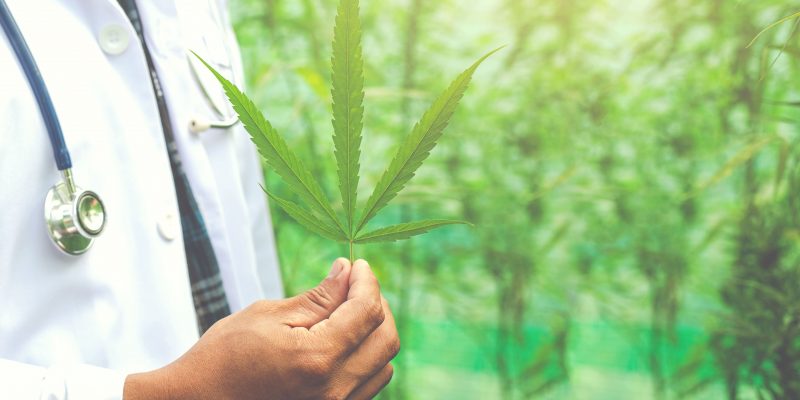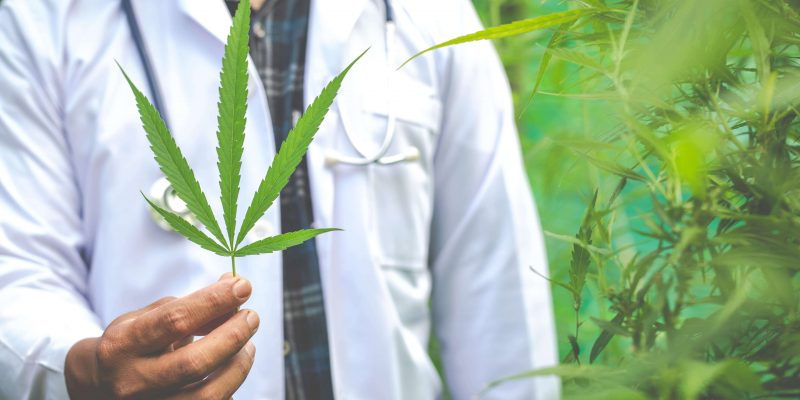You may be wondering about Medical Cannabis and Cancer. Medical cannabis is increasingly being used to treat the symptoms of cancer. Cannabis has been found to be an effective way to reduce pain, nausea, and vomiting associated with chemotherapy and other treatments. Additionally, cannabis use has also been found to reduce anxiety and depression in cancer patients. Research has also suggested that cannabis can have a positive effect on some of the side effects caused by radiation therapy and even slow down the progression of certain types of cancers. With further research and clinical trials, medical cannabis may pave the way for more successful treatments for cancer in the future
What is Medical Cannabis?
Medical cannabis is a broad term for cannabis-based medicine that is used to relieve symptoms of certain conditions. The cannabis plant contains more than 100 different chemicals named cannabinoids, with each one producing a different effect on the endocannabinoid system in the body. Delta-9 tetrahydrocannabinol (THC) and cannabidiol (CBD) are the two main cannabinoids used in medicinal cannabis in Ireland. Medical cannabis is available to treat chemotherapy-induced nausea and vomiting (CINV).
Read more about Medical Cannabis here.
Cannabis Oil, CBD Oil, Hemp Oil
Cannabis Oil comes from the flowers, leaves, and stalks of the cannabis plant. Cannabis Oil often contains high levels of Tetrahydrocannabinol (THC). Cannabis Oil is only available under prescription.
CBD Oil comes from the flowers of the cannabis plant and does not contain high levels of Tetrahydrocannabinol (THC), one of the many cannabinoids in cannabis. CBD Oil is often sold in health shops as a food supplement. CBD is approved as a treatment for other medical conditions such as Epilepsy, but no CBD products have been approved for use to treat chemotherapy-induced nausea and vomiting.
Hemp Oil comes from the seeds of the cannabis plant, these seeds do not contain any Tetrahydrocannabinol (THC).
An Overview of Cannabis Research for Cancer
Up to three-fourths of all cancer patients experience chemotherapy-induced nausea and vomiting. CINV can complicate or prevent the administration of planned therapy, decrease the quality of life, and can often be the most distressing and feared consequence of chemotherapy, effective management is essential.
A trial was conducted by the University of Sydney on behalf of the New South Wales Government in 2020. The trial ran for 2 and a half years with a total of 81 patients enrolled. Patients received capsules containing 2.5 mg THC and 2.5 mg CBD, which increased to 5mg over the course of the trial. Results showed significant improvement in nausea and vomiting from chemotherapy. Side effects such as sedation, dizziness and drowsiness were rated as moderate in about one-third of people using medicinal cannabis, but these are considered manageable.
The authors of this study plan to continue this research with a phase 3 parallel component of this trial, recruiting 170 CINV patients.
Smith et al conducted a review in 2015 titled “Cannabinoids for Nausea and Vomiting in adults with cancer receiving chemotherapy”. Smith reviewed 23 controlled trials examining the quality of evidence for cannabis-based medicines on cancer symptoms such as nausea and vomiting. The review found that people who received medical cannabis for symptoms experienced less nausea and vomiting. It found participants who received cannabinoids were five times as likely to report a complete absence of vomiting, and three times as likely to report a complete absence of nausea and vomiting.
Tramèr , Carroll et al systematically reviewed cannabinoids for control of chemotherapy-induced nausea and vomiting. The evidence we have from randomised trials shows cannabinoids to be slightly better than conventional antiemetics for treating chemotherapy-induced nausea and vomiting. Additionally, patients preferred cannabis-based medicine. In selected patients, cannabinoids may be useful as mood-enhancing adjuvants for the control of chemotherapy-related sickness.
How does a person qualify for the use of Medical Cannabis?
The programme makes it possible for a consultant to prescribe medicinal cannabis for a number of conditions, where a patient has failed to respond to traditional pharmaceutical treatments.
Currently, three conditions qualify under the Medicinal Cannabis Access Programme.
You can take our eligibility checker to see if you are eligible to qualify for the Medical Cannabis Access Programme.
Medical Cannabis Access Programme
In June 2019 the Minister for Health launched the Medical Cannabis Access Programme to be operational on a pilot basis for five years. The programme will help facilitate access to medicinal cannabis for suitable candidates. The Medicinal Cannabis Access Programme is currently under review by the Department of Health
The program allows a consultant to prescribe medicinal cannabis for a variety of diseases in which a patient has not responded to typical pharmaceutical therapies.
The Medicinal Cannabis Access Programme now accepts three conditions.
How does Cannabis help treat Cancer Related Symptoms?
Nausea and vomiting due to chemotherapy are common side effects of treatment. Medical cannabis for cancer patients has been shown to alleviate these symptoms. Considerable evidence demonstrates that manipulation of the endocannabinoid system regulates nausea and vomiting in humans. According to randomised research, medicinal cannabis is more effective than traditional medication for treating nausea and vomiting due to chemotherapy.
Methods of Consumption
Depending on the medical marijuana product you are prescribed there are multiple ways to administer medicinal cannabis.
- Inhalation: Inhaled cannabis may be the most well-known method of administration for medical cannabis flowers. The main benefit of inhaled cannabis is that the onset of action is practically quick, making it simple for a patient to titrate the dosage for maximal benefit. At Oleo we have developed our Panacea Inhaler which is available to patients prescribed medical cannabis under the Medical Cannabis Access Programme and is also available to buy on Amazon.
- Sublingual: Sublingual delivery is another option for the administration of oil-based medical cannabis. Medical cannabis oil can have a rapid onset of action by being administered under the tongue or in the oral cavity. The patient feels the effects after a few minutes. Other cannabis products may come in a spray bottle that can be sprayed directly into the mouth.
- Tablet/ Pill format: Cannabinoids are soluble in fat, their absorption through the gut is slower and less predictable, depending on both the metabolism of the individual and the contents of the stomach. Determining an effective dose is more challenging, especially for the inexperienced patient, because the onset of the effect may take up to an hour to occur.
Are there any side-effects with Medical Marijuana?
Medical cannabis, like all medications, poses a risk of side effects. The type of medical cannabis product, the active chemicals (such as CBD, THC, or a combination), and individual differences can all have a significant impact on side effects. THC-containing products can impair driving and cognitive performance and produce sedation, anxiety, dizziness, appetite stimulation, and other symptoms. Although CBD rarely has significant negative effects on its own, it can change the effects of other prescribed drugs.
Laws Surrounding the Use Of Cannabis
Cannabis containing THC is currently illegal in Ireland. As a medical patient, you may be permitted to obtain a prescription for medical cannabis under either the MCAP programme or a Ministerial Licence. Cannabis obtained without a prescription remains illegal under the Misuse of Drugs Act 1977.
You can view our blog Is Cannabis Legal in Ireland to find out more.
Conclusion
There are multiple sources of evidence to show that cannabis can be effective in managing symptoms and treatment side effects of cancer such as nausea and vomiting. Unfortunately, most cancer patients receiving chemotherapy will suffer from its side effects. When patients do not respond to routine medication to control nausea and vomiting medical cannabis may be prescribed. It is best to discuss medical cannabis with your healthcare provider.






